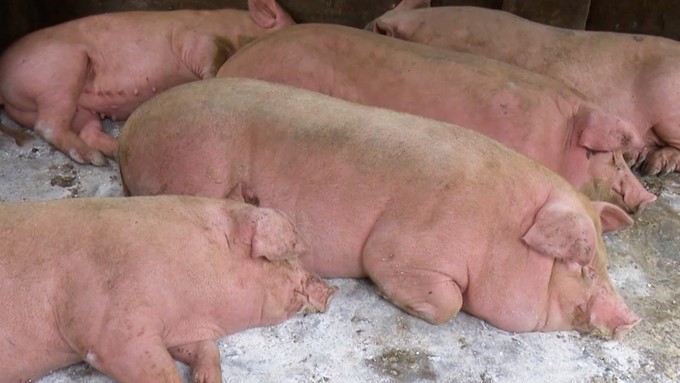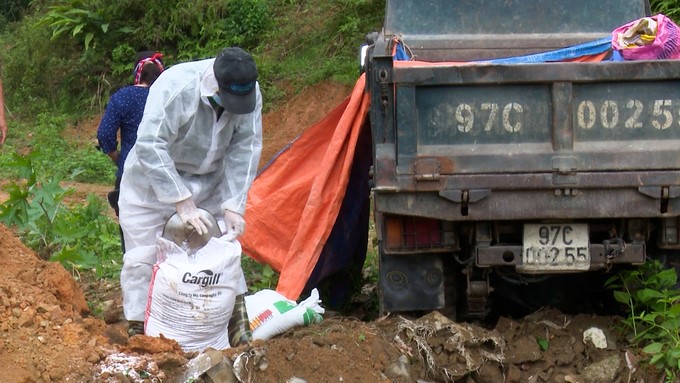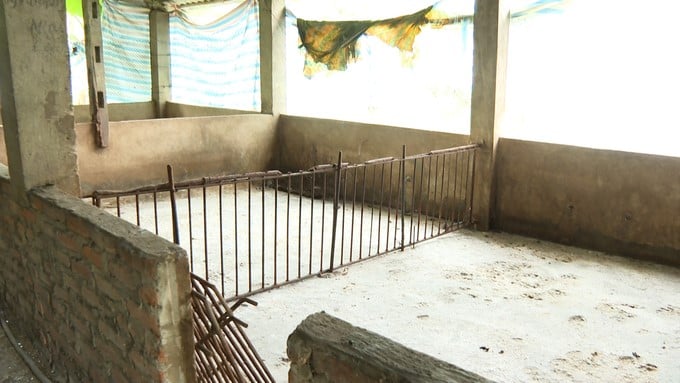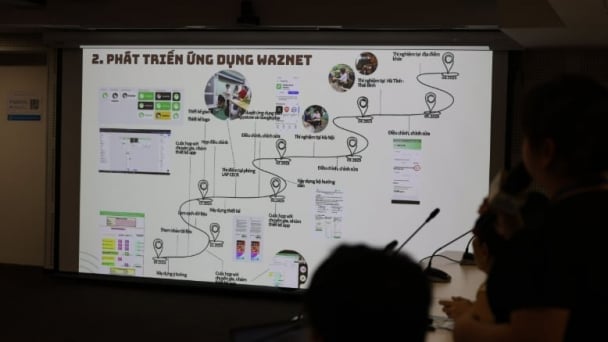June 26, 2025 | 00:27 GMT +7
June 26, 2025 | 00:27 GMT +7
Hotline: 0913.378.918
June 26, 2025 | 00:27 GMT +7
Hotline: 0913.378.918

African swine fever caused thousands of livestock households in Bac Kan to suffer. Photo: Ngoc Tu.
Currently, African swine fever has broken out and spread rapidly, causing the livestock industry in Bac Kan province to suffer. From the beginning of the year to May 29, in Bac Kan, African swine fever appeared in more than 1,000 households in 314 villages and 75 communes in all districts and cities.
The epidemic has killed more than 4,300 pigs, forcing them to be destroyed, with an estimated loss of more than VND 7 billion. However, this is only a temporary loss figure and may increase in the coming time. In addition, there will be many long-term losses when the pig farming industry is struggling as it is today.
Thus, the number of communes having the epidemic has accounted for over 2/3 of the total number of communes, wards, and towns in Bac Kan. Among these, 4 communes and wards, including Trung Hoa commune (Ngan Son district), Nguyen Thi Minh Khai ward (Bac Kan city), Cao Thuong commune (Ba Be district), and Tan Tu commune (Bach Thong district), have had a second outbreak of the epidemic.
Currently, in the entire Bac Kan province, only 3 communes have declared the end of the epidemic; 1 commune has not had a new case for 21 days out of a total of 75 communes with the epidemic.
In Bac Kan city alone, all 8/8 communes and wards have the epidemic; Cho Moi district has 12/14 communes with the epidemic; and Bach Thong district also has 12/14 communes. The current price of live pigs is high, about VND 70,000/kg; however, in many villages, there are no longer pig-farming households, and a number of programs and projects supporting pig farming under national target programs have also had to be temporarily suspended.
Faced with this actual situation, on May 29, the Bac Kan Provincial People's Committee held a meeting to discuss solutions to prevent and control African swine fever. At this meeting, delegates from the province's steering committee on epidemic prevention and control and local leaders analyzed the reasons for the current epidemic outbreak.
An issue that many people are concerned about is information about traders coming to Bac Kan to distribute leaflets and post on social networks to buy dead and sick pigs. On some social networking groups, traders offer buying prices ranging from VND 300,000 to 500,000/sick or dead pig, regardless of the area.

Destroying pigs dead due to African swine fever in Bac Kan province. Photo: Ngoc Tu.
Mr. Luong Thanh Loc, Vice Chairman of the Na Ri District People's Committee, said that recently in the district, a vehicle was discovered to buy pigs in an epidemic area to transport for consumption, and the functional force asked not to transport them out of the area.
Besides, while the epidemic is developing very complicatedly, the situation of throwing dead pig carcasses into rivers, streams, and the environment still occurs.
At the meeting, Mr. Nong Quang Nhat, Vice Chairman of the Bac Kan Provincial People's Committee, requested Cho Moi district to report whether or not people sell sick pigs to private traders.
Mr. Bui Nguyen Quynh, Head of the Cho Moi Department of Agriculture and Rural Development, said that there is no such thing as people bringing dead pigs to sell. Any dead pig has been made a record for destruction. Any household that has pigs dead due to the epidemic has destroyed them immediately.
At the chairing table, Vice Chairman of the Bac Kan Provincial People's Committee Nong Quang Nhat asked, "If all the dead pigs were destroyed, is there a situation of throwing dead pigs into rivers and streams?" Mr. Quynh replied, "We also recorded video to testify to our destruction according to regulations."
However, according to Mr. Nong Duc Di, Deputy Director of the Bac Kan Department of Natural Resources and Environment, just last week, when inspecting some sections of the Cau River in Thanh Thinh commune (Cho Moi district), there were dead pigs thrown into the river, and they smelled bad. When asking people here, they said that every day there are dead pigs floating through this river section.
In addition to reasons such as the work of monitoring, detecting, and reporting the epidemic is untimely; the grassroots government is still subjective and negligent and lacks veterinary specialized officials; and small-scale livestock farming accounts for over 70%, making it difficult to prevent, the subjective factors still remain. This is also a gap in the work of preventing and controlling African swine fever in Bac Kan.
At this meeting, Mr. Nong Quang Nhat, Vice Chairman of the Bac Kan Provincial People's Committee, assessed that in recent times, the work of preventing and controlling African swine fever has not been effective, leading to the epidemic spreading on a large scale.

Many households in Bac Kan have stopped raising pigs, and their barns are abandoned. Photo: Ngoc Tu.
Mr. Nhat requested that communes need immediate solutions to completely handle the outbreak and prevent it from spreading. Communes that have not yet had an epidemic but are at high risk must closely monitor the transportation of pigs and well control the source of breeds to ensure safety before raising.
Mr. Nhat also affirmed that wherever irresponsibility causes the epidemic to spread, allowing people to throw dead pigs into rivers, streams, the environment, or buy and sell dead pigs, the government from commune to district will be strictly punished.
Translated by Thu Huyen

(VAN) Prime Minister Pham Minh Chinh held talks with Chinese Premier Li Qiang on June 24, in Tianjin, China.

(VAN) On the occasion of attending the World Economic Forum (WEF) in Tianjin, China, on the morning of June 25 (local time), Prime Minister Pham Minh Chinh met with Senegalese Prime Minister Ousmane Sonko.

(VAN) The Net Zero door is opening, but no one can walk through it if they stay outside the mandatory emissions inventory roadmap starting in 2025.

(VAN) The visit to China Agricultural University opens up new prospects for high-tech agricultural cooperation, fostering connections between research institutes and enterprises of Vietnam - China.

(VAN) Con Dao, the emerald gem in the vast ocean, is undergoing a powerful revival, transforming into one of Vietnam’s leading ‘eco-spiritual paradises.’ In this journey.

(VAN) UNDP in Vietnam organized a consultative workshop to discuss ways to integrate detailed implementation plans into the national food systems transformation strategy.

(VAN) Waznet helps digitize waste collection data, recognizing the environmental contributions of informal collectors in reducing greenhouse gas emissions.